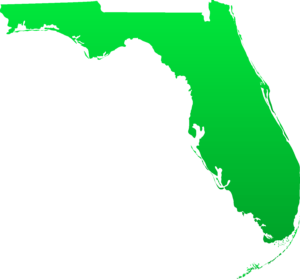No written answer to the petition nor any other pleading need be filed. No child, whether represented by counsel or otherwise, shall be called upon to plead until he or she has had a reasonable time within which to deliberate thereon.
(a) Acceptance of Plea. In delinquency cases the child may plead guilty, nolo contendere, or not guilty. The court may refuse to accept a plea of guilty or nolo contendere, and shall not accept either plea without first determining that the plea is made voluntarily and with a full understanding of the nature of the allegations and the possible consequences of such plea and that there is a factual basis for such plea.
(b) Plan of Proposed Treatment, Training, or Conduct. After the filing of a petition and prior to the adjudicatory hearing, a plan of proposed treatment, training, or conduct may be submitted on behalf of the child in lieu of a plea. The appropriate agencies of the Department of Juvenile Justice or other agency as designated by the court shall be the supervising agencies for said plan and the terms and conditions of all such plans shall be formulated in conjunction with the supervising agency involved. The submission of a plan is not an admission of the allegations of the petition of delinquency.
If such a plan is submitted the procedure shall be as follows:
(1) The plan must be in writing, agreed to and signed in all cases by the state attorney, the child, and, when represented, by the child’s counsel, and, unless excused by the court, by the parents or custodian. An authorized agent of the supervising agency involved shall indicate whether the agency recommends the acceptance of the plan.
(2) The plan shall contain a stipulation that the speedy trial rule is waived and shall include the state attorney’s consent to defer the prosecution of the petition.
(3) After hearing, which may be waived by stipulation of the parties and the supervising agency, the court may accept the plan and order compliance therewith, or may reject it. If the plan is rejected by the court, the court shall state on the record the reasons for rejection.
(4) Violations of the conditions of the plan shall be presented to the court by motion by the supervising agency or by any party. If the court, after hearing, finds a violation has occurred, it may take such action as is appropriate to enforce the plan, modify the plan by supplemental agreement, or set the case for hearing on the original petition.
(5) The plan shall be effective for an indeterminate period, for such period as is stated therein, or until the petition is dismissed.
(6) Unless otherwise dismissed, the petition may be dismissed on the motion of the person submitting the plan or the supervising agency, after notice of hearing and a finding of substantial compliance with the provisions and intent of the plan.
(c) Written Answer. A written answer admitting or denying the allegations of the petition may be filed by the child joined by a parent, custodian, or the child’s counsel. If the answer admits the allegations of the petition it must acknowledge that the child has been advised of the right to counsel, the right to remain silent, and the possible dispositions available to the court and shall include a consent to a predispositional study. Upon the filing of such an answer, a hearing for adjudication or adjudication and disposition shall be set at the earliest practicable time.
(d) Entry of Plea by Court. If a child stands mute or pleads evasively, a plea of not guilty shall be entered by the court.
(e) Withdrawal of Plea Before Disposition. The court may in its discretion for good cause shown at any time prior to the beginning of a disposition hearing permit a plea of guilty or nolo contendere to be withdrawn, and if a finding that the child committed a delinquent act has been entered thereon, set aside such finding and allow another plea to be substituted for the plea of guilty or nolo contendere. In the subsequent adjudicatory hearing the court shall not consider the plea which was withdrawn as an admission.
(f) Withdrawal of Plea After Disposition. A child who pleads guilty or nolo contendere without expressly reserving the right to appeal a legally dispositive issue may file a motion to withdraw the plea within 30 days after rendition of the disposition, but only on the grounds that
(1) the lower tribunal lacked subject matter jurisdiction;
(2) there has been a violation of the plea agreement;
(3) the plea was involuntary;
(4) there has been a sentencing error; or
(5) as otherwise provided by law.
(g) Withdrawal of Plea After Drug Court Transfer. A child who pleads guilty or nolo contendere to a charge for the purpose of transferring the case, as provided by law, may file a motion to withdraw the plea upon successful completion of the juvenile drug court treatment program.

